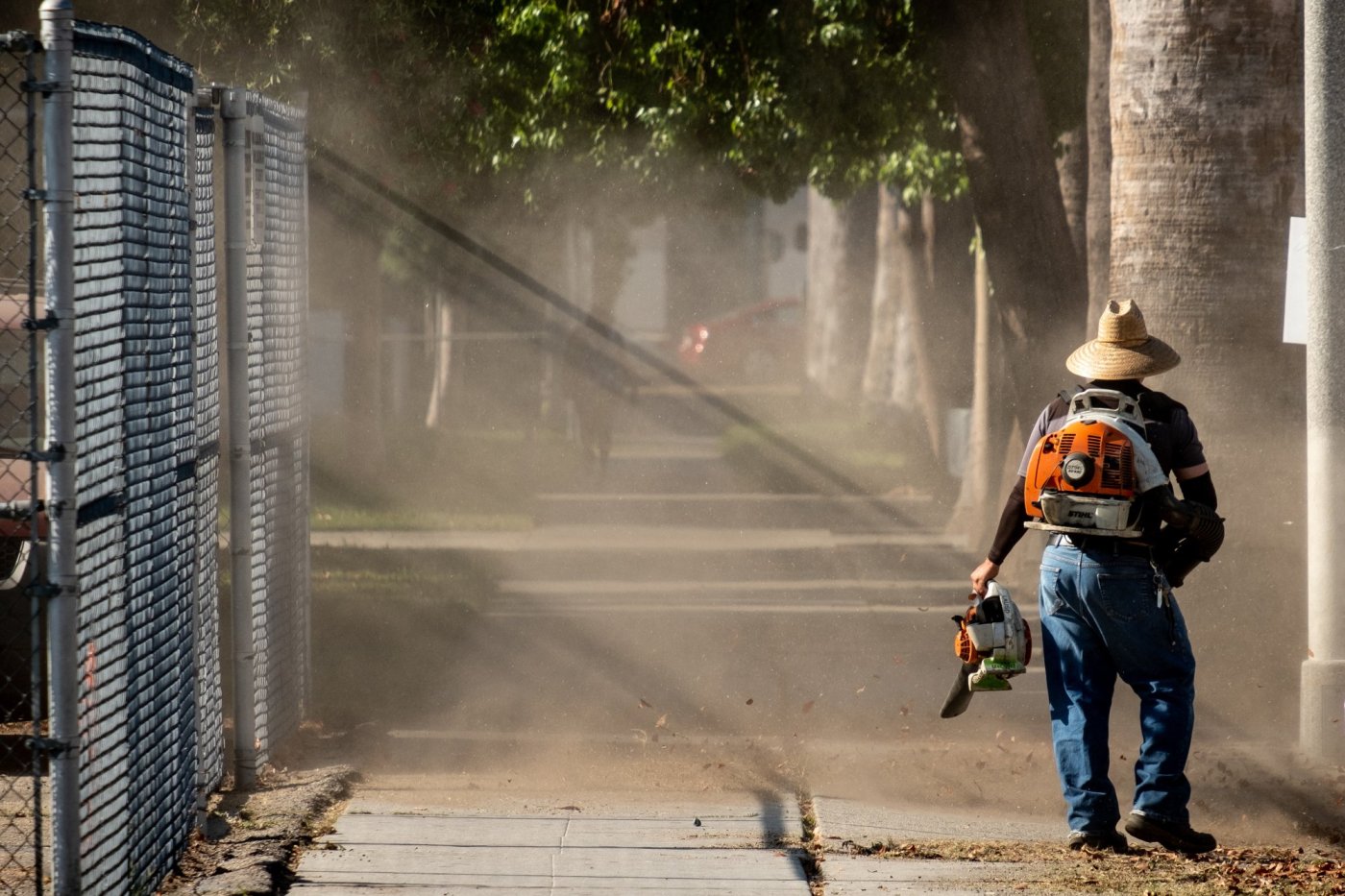In another move to transition away from fossil fuels, Irvine is banning the use of gas-powered lawn equipment, beginning next summer.
That includes gas-powered leaf blowers, lawnmowers, string trimmers, hedge trimmers, edgers and chainsaws.
Starting July 1, businesses working in Irvine that employ more than 50 people won’t be able to use gas-powered leaf blowers and lawnmowers while residents and all other businesses have until Jan. 1, 2025, to replace theirs.
The ban on using all other gas-powered equipment will go into effect on Jan. 1, 2025, for businesses that employ more than 50 people, and July 1, 2026, for residents and all other businesses.
Any landscaping company working in Irvine — regardless of where that business is based — will be subject to these regulations, said city spokesperson Kristina Perrigoue.
While the state has already moved forward with phasing out gas-powered lawn equipment, the city’s ban expedites those efforts, said Joel Belding, deputy director of Irvine’s sustainability department. Under state law, which goes into effect Jan. 1, only the sale of new gas-powered lawn equipment is banned, not the use of existing equipment.
City leaders also voted last month to work with the South Coast Air Quality Management District to provide financial assistance to Irvine residents and Irvine-based landscaping businesses to purchase electric tools. The cost for electric leaf blowers is generally somewhere in the $1,500 to $3,000 range, up to three times the cost of a gas-powered one, Belding said.
South Coast AQMD has two general programs to help replace gas-powered residential lawn mowers and commercial lawn equipment: a rebate program that offers up to a $250 rebate for residents to purchase a cordless, electric lawn mower and a program for commercial landscapers and gardeners within its jurisdiction that covers up to 85% of the cost of commercial electric lawn equipment.
The Irvine-specific rebate program will essentially be an expansion of South Coast AQMD’s efforts to cover the full range of gas-powered equipment addressed in Irvine’s ban, Perrigoue said. The city will foot $150,000 to fund the program, but more could be added based on demand.
Irvine residents and Irvine-based businesses will be able to take advantage of both the general program and the Irvine-specific program. The partnership between South Coast AQMD and Irvine will be the first of its kind, said agency spokesperson Kim White.
“The financial incentive provided through the partnership will result in more equipment being replaced,” she said.
Funds will be disbursed on a first-come, first serve basis, Belding said.
Related Articles
US producing more oil than any country in history
Brazil sues meatpackers over Amazon deforestation
Northeast cleans up after storm drops significant rainfall
Storms wallop the Northeast, ground flights, flood roads
More than 3 million Americans are already climate migrants, researchers say
The Orange County Power Authority also offers discounted equipment and rebates on electric tools available for purchase on its website.
Other Southern California cities — including Pasadena, Beverly Hills, Santa Monica and Los Angeles — have already banned the noisy lawn equipment. In Pasadena, where the use of gas-powered leaf blowers was banned in April, failure to comply with an initial 30-day warning notice will result in monetary citations. The first citation is $100, second is $200, third is $500 and the fourth is $1,000.
Irvine’s ban, however, won’t automatically come with punitive enforcement, Belding said. The city will delay traditional enforcement, like fines, until there is more general awareness of the ban and “market options become common.”
“We want to give the market a chance to respond to the state’s ban on sales and learn about how landscapers and commercial property owners are responding to the change and utilizing the rebate program,” Perrigoue said. “The city is taking an education-first approach and businesses’ good faith efforts should mean that no businesses are adversely impacted.”





